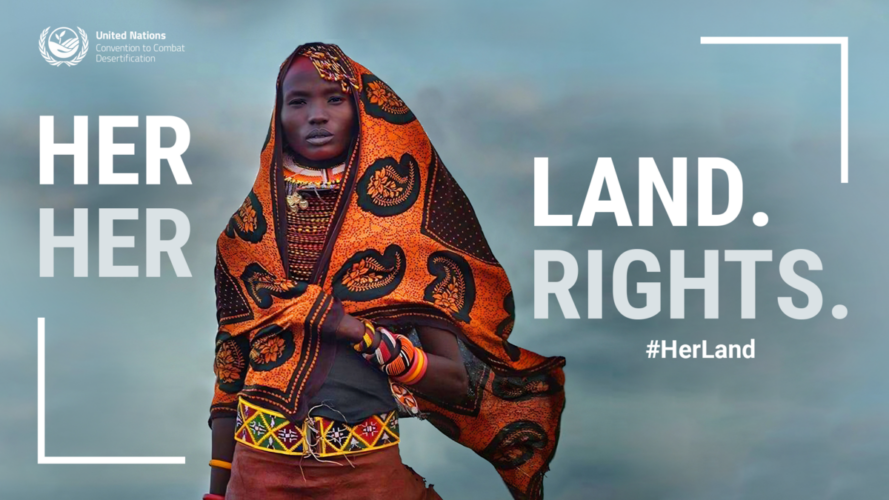This year’s International Day of Desertification and Drought, marked on 17th June by the United Nations Convention to Combat Desertification (UNCCD) and the international community, illuminates the pressing issue of women’s land rights and their contributions towards combating desertification and drought under the theme, “Her Land. Her Rights”.
Women, representing nearly half of the world’s agricultural workforce, play a pivotal role in maintaining the health and sustainability of our lands. Yet, they are disproportionately affected when land is degraded, and water becomes scarce. Hence, focusing on women’s equal access to land and related assets represents a direct investment in their and humanity’s futures.
Land degradation, desertification, and drought have severe implications for food security, affecting the livelihoods of millions of people worldwide. The disruption of vital ecosystem functions, negative impact on biodiversity, water and soil resources, and increased carbon emissions all contribute to this crisis. The number of food-insecure people in drought-sensitive countries has increased significantly since 2012, with hunger rising, particularly in drought-prone areas. It is critical to recognize that these issues disproportionately impact women and girls who often do not have access to and control of land resources. Women can be powerful agents of change to these environmental threats, as they are on the frontlines of land degradation and climate change impacts.
Emphasizing the importance of gender equality in land rights, global communities assert, “We cannot achieve land degradation neutrality without gender equality, and we cannot exclude half the population from land management decisions because of their gender.” With women holding a vital stake in the health of the land, the time is now for them to be at the forefront of global land restoration and drought resilience efforts.
Everyone can play a part in addressing this global challenge. Governments worldwide can enact laws to end discrimination and secure women’s rights to land and resources, creating an environment that promotes their active involvement in land management. Businesses can prioritize women and girls in their investments, ensuring they have the means to access finance and technology. Individuals, too, can do their part by supporting women-led initiatives that restore land and counter desertification. Investing in women’s equal access to land and associated assets is not merely an act of justice. It’s an investment in their future and the future of humanity. By securing women’s land rights, we can advance global gender equality and land restoration goals, contributing significantly to achieving broader Sustainable Development Goals.
In this feature, we explore the profound significance of the International Day of Desertification and Drought 2023, spotlighting the tireless efforts of organizations battling land degradation and desertification. Their work, focused on safeguarding ecosystems and promoting sustainable practices, should inspire us all to act. By collectively acknowledging and addressing gender disparity in land rights and the broader issue of desertification, we can catalyze change, fostering a more resilient, equitable, and sustainable future for our planet and future generations.
Feature articles:
- Desertification and Drought Day 2023
- Her Land. Her Rights: Advancing Gender Equality and Land Restoration Goals
- No ordinary irrigation in the Gambia: innovative solar-powered technologies are securing access to water for rural communities
- Tele-Bere builds farmers sustainable farming practices in Ghana to contribute to land restoration (Video)
- Western tree planters association’s ambitious plan for commercial forestry begins with trees on farm census
- GhaFFaP Climate Innovation Action in Ghana (Publication)
- Green Ghana Day: GhaFFaP plants 3 million trees to support government’s cause
- Cultural practices restricting deforestation in Mbulu landscape _ FFF Tanzania (Video)
- Forest and Farm Facility Programme Supports Restoration of Lake Ol Bolossat in Kenya

